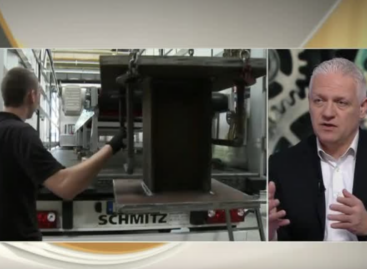Slight growth in the leasing market
The domestic leasing market showed a slight increase in the amount financed in the first half of 2025, while the number of contracts decreased. More than 90 percent of the new funds allocated are still tied to the corporate sector. Although passenger car and light commercial vehicle financing remained the main driver of the market, some segments – such as large commercial vehicles and other machinery – performed weaker. According to the Secretary General of the Hungarian Leasing Association, László Kőszegi, the room for maneuver of leasing companies is significantly influenced by state subsidies, especially in the current interest rate environment. Subsidized schemes – led by the Széchenyi Card Program – play a key role in stimulating investments.
 The Hungarian Leasing Association published its second quarter report, according to which in the first half of 2025, the domestic leasing market slightly surpassed the result achieved in the same period of 2024 in terms of the amount financed, while the number of contracts decreased. The value of new placements reached HUF 478.1 billion, which is a 1.8 percent increase year-on-year, while the number of concluded contracts decreased by 3.2 percent, resulting in 40,377 contracts in the first half of the year.
The Hungarian Leasing Association published its second quarter report, according to which in the first half of 2025, the domestic leasing market slightly surpassed the result achieved in the same period of 2024 in terms of the amount financed, while the number of contracts decreased. The value of new placements reached HUF 478.1 billion, which is a 1.8 percent increase year-on-year, while the number of concluded contracts decreased by 3.2 percent, resulting in 40,377 contracts in the first half of the year.
The value of the total portfolio increased by 6.7 percent to HUF 2,349 billion. At the same time, the number of contracts belonging to the portfolio decreased – 2 percent less than in the first half of 2024, totaling 311,926.
Based on the data for the first half of 2025, the majority of leasing financing – approximately 91 percent, or HUF 436 billion – was related to the corporate sector. Based on the financed amounts, three-quarters of leasing companies’ corporate clients are small and medium-sized enterprises, while the remaining 25 percent are large enterprises. The share of private individuals is relatively low: only 8.5 percent, which means 40.8 billion forints of financing. The presence of state and other non-residential clients is negligible.
At the same time, László Kőszegi pointed out that “residential contracts account for nearly a fifth, 18 percent, of the total number of contracts, and in terms of the total so-called retail car financing, the proportion of residential clients has already reached 26 percent.”
According to the latest data from the Hungarian Leasing Association, 82 percent of the financed amounts were related to new vehicles, while 18 percent were related to used vehicles. In terms of number of units, the ratio was 75-25 percent in the first half of the year.
Related news
Richárd Szabados: the Széchenyi Card multifunctional product package provides businesses with a solution for their specific life situations
🎧 Hallgasd a cikket: Lejátszás Szünet Folytatás Leállítás Nyelv: Auto…
Read more >Related news
Nestlé to sell remaining ice-cream assets but commits to Froneri venture
🎧 Hallgasd a cikket: Lejátszás Szünet Folytatás Leállítás Nyelv: Auto…
Read more >








